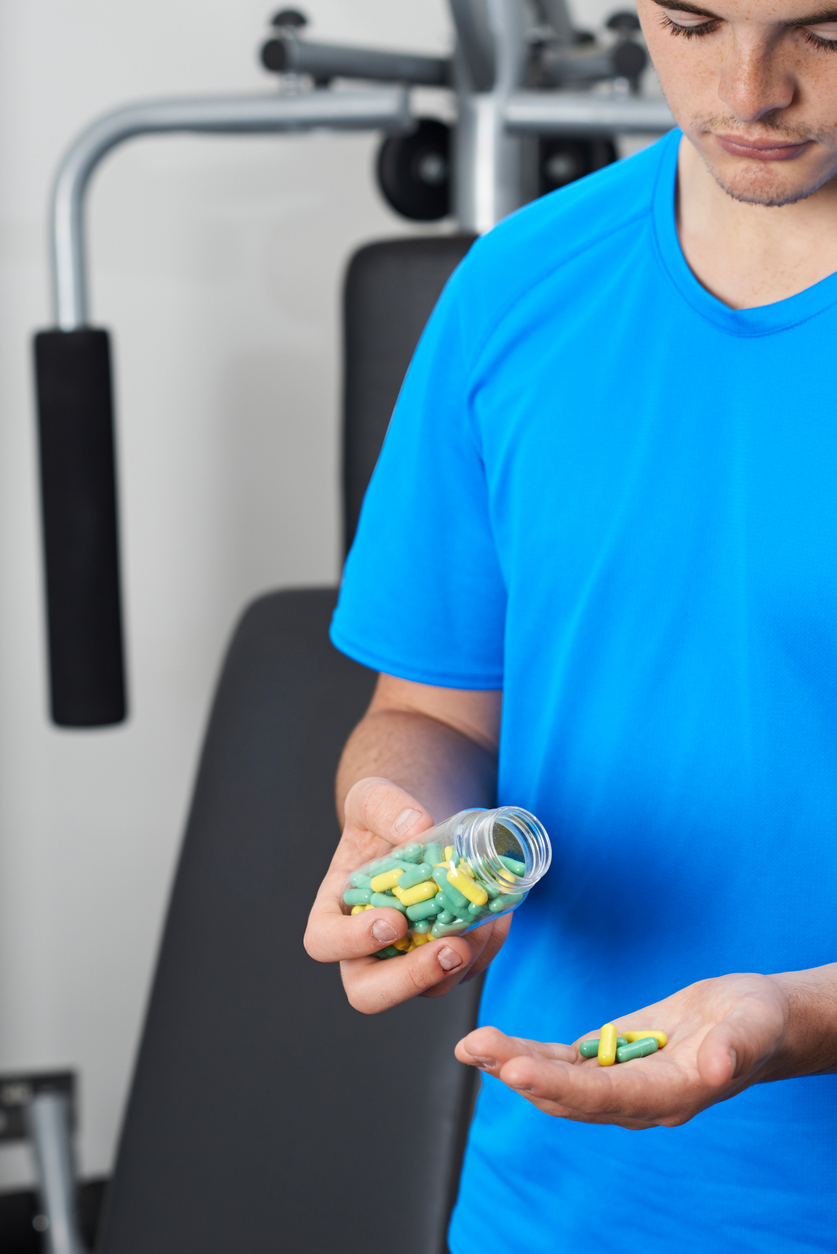The Risks for Teenagers of Using Steroids
Teenagers are faced with many pressures, such as those associated with school, relationships, puberty changes, and the pressure to do well at sports. So, it’s probably no surprise that research has found high rates of steroid use among teenagers, particularly teenage boys.
Research has shown the pressure to start using steroids begins in high school with some 14- or 15-year-old athletes influenced by senior students to use steroids to progress quickly toward the next stage of their sporting career.
Interestingly, steroid use is just as common among teenagers who do not participate in a team sport. These are often students preoccupied with their body size being too small or not muscley enough. In the DSM V, this preoccupation is known as muscle dysphoria but most people call it Bigorexia. And the condition is on the rise, especially among young adults with up to 35% of teenagers admitting to using protein powders or shakes, 5 to 10% supplements such as creatine, and almost 6% using steroids to bulk up.
But as a student who uses steroids or as a parent who is aware their child is taking them, what are the risks you need to know about?

What are anabolic steroids?
Anabolic steroids (also called “roids”) promote muscle growth because they are a man-made derivative of the natural male sex hormone, testosterone. Testosterone has several different functions in both a male’s and female’s body but significantly it increases muscle protein synthesis by an average of 27%. Abuse of these drugs builds lean muscle mass, promotes aggressiveness, and increases body weight.
Anabolic steroids are not the same as steroid medications, such as prednisone or hydrocortisone, that are legitimately used to treat asthma and other inflammatory conditions. They are only available legally on a prescription from a doctor and their proper use includes certain blood disorders, connective tissue diseases, some cancers, some sexual disorders, and a few other serious conditions.
What are some popular anabolic steroids?
There are more than 100 variations of anabolic steroids, but some of the more common ones include dianabol, deca durabolin, depo-testosterone, and testosterone enanthate.
No anabolic steroid is safe; they all have potentially serious side effects and must be prescribed and used only under close medical supervision. Under both federal and often State Law, anabolic steroids may only be prescribed by an authorized prescriber after a face-to-face examination of a patient.
But steroids are easy for teenagers to obtain over the internet, from friends, or at the gym.
Signs of anabolic steroid use
If your teen plays competitive sports or has a naturally small build that has quickly bulked out, you may be concerned about the possibility of steroid use.
Signs to look for include:
- Acne that has suddenly become severe with pustules (pus-filled spots), sometimes overnight
- A short temper, aggressive behavior, or short periods of rage (also called "roid rage")
- Hallucinations
- Narcissistic behavior or sudden changes in behavior
- Displays of perceived powerfulness often with a lack of empathy
- A slowing in their height gain
- Presence of needle paraphernalia, such as syringes, vials, hypodermic needles, or resealable plastic bags.
If you suspect possible steroid use, talk to your pediatrician or doctor about screening your teenager further. Pay attention to their behavior and talk to them about it.
What are the dangers of steroid use?
Using steroids to build muscle can cause serious physical and mental problems. Teenagers, whose bodies are still developing, are at heightened risk.
Mental development
Aggression and drastic mood swings are common with long-term steroid use. Called “roid-rage” these can cause damage to relationships and severe depression. Feelings of paranoia, jealousy, or grandeur can also be present.
Sexual health and development
In teenage boys, steroid use can cause them to grow breasts and have smaller testicles. They can lower sperm counts and decrease fertility as well as increase the risk of prostate cancer.
In girls, steroids can cause hair loss around the temples and crown (similar to male-pattern baldness), cause growth of facial hair, and an enlarged clitoris. A girl’s voice may deepen and her periods may stop.
Both boys and girls may develop severe acne and puberty may stop, limiting height. Steroids can also cause weight gain, bad breath, oily hair, and red skin spots.
Serious steroid effects
Steroids can affect your heart, increasing your blood pressure, cholesterol levels, and the risk of heart disease or having a heart attack or stroke.
Steroids can also cause liver disease and kidney failure.
The use of steroids is associated with a higher risk of injury to tendons and muscles.
See also
- Anabolic Steroids - Abuse, Side Effects and Safety
- Blood Doping: Lance Armstrong & Pro Cycling
- Can a Drug Test Lead to a False Positive?
- Drug Testing FAQs
- Toxicology Drug Testing
Sources
- Teens and Steroids: A Dangerous Combo 12/04/2017 FDA https://www.fda.gov/consumers/consumer-updates/teens-and-steroids-dangerous-combo
- How Steroids Can affect Teenage development. Destinations for Teens. July 26, 2020. https://www.destinationsforteens.com/destinations-blog/steroids-can-affect-teenage-development/
- Bahrke, M. S., Yesalis, C. E., & Brower, K. J. (1998). Anabolic-androgenic steroid abuse and performance-enhancing drugs among adolescents. Child and adolescent psychiatric clinics of North America, 7(4), 821–838.
- Five Percent of Teens Use Steroids to Increase Muscle Partnership to End Addiction Nov 2012 https://drugfree.org/drug-and-alcohol-news/five-percent-of-teens-use-steroids-to-increase-muscle/
- DSM-5 Changes: Implications for Child Serious Emotional Disturbance [Internet]. Table 23DSM-IV to DSM-5 Body Dysmorphic Disorder Comparison https://www.ncbi.nlm.nih.gov/books/NBK519712/table/ch3.t19/
- Griggs, R. C., Kingston, W., Jozefowicz, R. F., Herr, B. E., Forbes, G., & Halliday, D. (1989). Effect of testosterone on muscle mass and muscle protein synthesis. Journal of applied physiology (Bethesda, Md.: 1985), 66(1), 498–503. https://doi.org/10.1152/jappl.1989.66.1.498
Further information
Always consult your healthcare provider to ensure the information displayed on this page applies to your personal circumstances.
